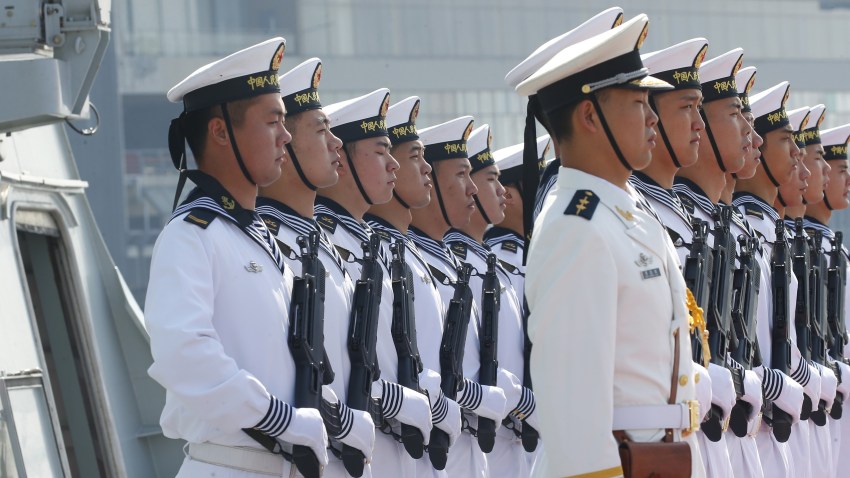Hello, everyone. Today at WPR, we’re covering how U.S.-China competition is affecting climate diplomacy and what’s missing from the debates over nuclear security.
But first, here’s our take on today’s top story:
China: The People’s Liberation Army, or PLA, Navy launched its largest-ever exercises in the Pacific Ocean, with China’s second aircraft carrier on course today to converge with more than 20 other Chinese warships in waters between Taiwan, the Philippines and the U.S. Pacific territory of Guam. (Financial Times)
Our Take: Complete modernization of the PLA has been and remains a central component of Chinese President Xi Jinping’s vision for China’s rise, and these exercises highlight how rapidly those changes have been accomplished, particularly with regard to China’s naval power. A massive years-long shipbuilding program has already advanced the PLA Navy’s capabilities in the Pacific, with the goal of transforming it into a blue-water fleet with global reach.
Get the Daily Review sent straight to your inbox every weekday.
These moves—and this week’s exercises—are clearly designed to counter the United States, which rose to global primacy through maritime power and whose Navy will play a key role as Washington shifts its geopolitical priorities to the Indo-Pacific. But as China’s naval capabilities have grown, the U.S. has had trouble keeping pace to maintain its dwindling advantage. As Blake Herzinger wrote in April, “After decades of insufficient funding, misguided investments and poor strategic planning, the U.S. has allowed its position of maritime superiority to slip away.”
Still, China’s naval rise has not come without political downsides. Beijing’s aggressiveness and bullying tactics in disputed regional waters have in recent years raised concerns among China’s neighbors, which in response have ramped up their security partnerships with the U.S. and, perhaps most importantly, with each other.

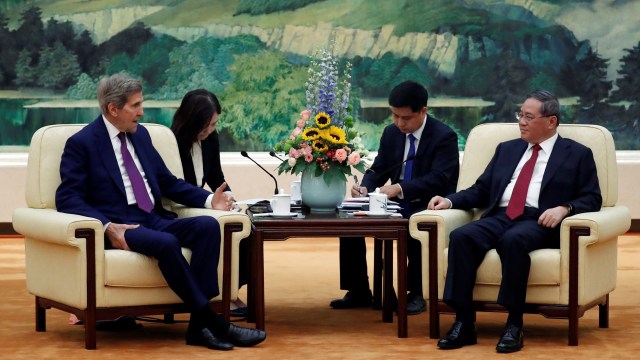
U.S.-China Competition Is Weaponizing the Green Transition
Among the senior U.S. officials who have traveled to Beijing in recent months was U.S. climate envoy John Kerry. He and his Chinese counterpart made no progress in their talks, nor has any emerged since. But the meeting did at least signal the resumption of regular U.S.-China climate diplomacy.
Still, as Andrew Gawthorpe writes, regular climate diplomacy might no longer cut it. In recent years, bilateral ties have deteriorated significantly. As a result, officials and observers in both capitals have become markedly more pessimistic about the feasibility of carving out a separate lane for climate progress amid the general diplomatic gridlock.
The Nuclear Security Debate Has a Major Blindspot
The risk of nuclear catastrophe has reentered the public imagination in recent years, reigniting debates about the best way to reduce the chances of one occurring. The problem with these debates, however, is that they focus singularly on nuclear weapons as a doomsday threat.
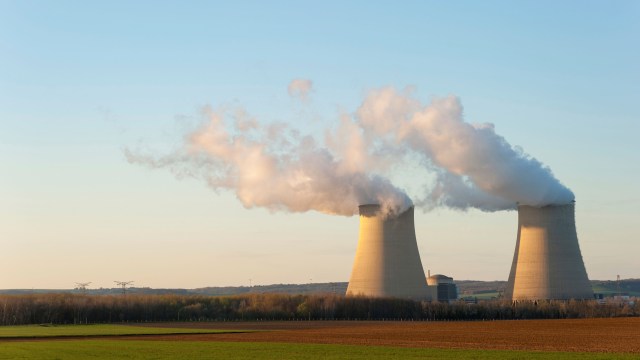
As columnist Charli Carpenter writes, that focus impedes an alternative view of the relationship between the nuclear era and global human security—namely, that peaceful nuclear technology can be a solution to a global security threat already destroying human life and threatening the future of civilization: the climate crisis.

Question of the Day: Which of the following West African countries has NOT experienced a military coup within the last three years?
- Mali
- Niger
- Togo
- Burkina Faso
Find the answer in the latest WPR Weekly Quiz, then read Alexander Clarkson’s column on the future of politics and security in Africa.

Tanzanian opposition leader Tundu Lissu was arrested and barred from attending a human rights rally Sunday after police accused him of unlawful assembly and obstructing police officers. Lissu, who was subsequently released, returned from a three-year-long exile in January, after President Samia Suluhu Hassan lifted a ban on opposition rallies put in place by her predecessor, John Magufuli.
Still, although Samia has implemented a series of domestic political reforms designed to reverse democratic backsliding under Magufuli, those reforms have not yet been institutionalized. As Nicodemus Minde wrote in May, that leaves her reform agenda—and, in turn, Tanzania’s democracy—still vulnerable.
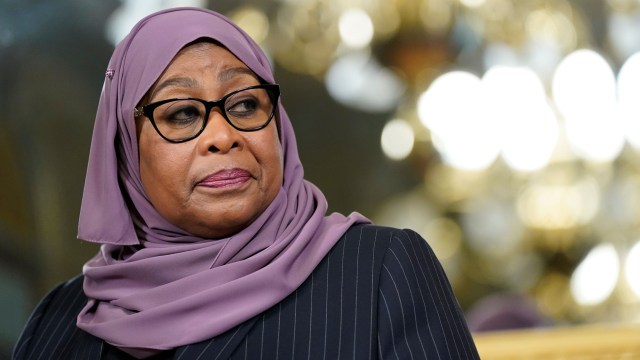
To Restore Tanzania’s Democracy, Samia Must Solidify Her Reforms
May 31, 2023 | President Samia Suluhu Hassan has sought to repair Tanzania’s democracy and reboot its foreign policy. Read more.
In Colombia, production of coca—the main ingredient used in cocaine—reached a record high last year, the U.N. said in a report Monday. Coca production increased 13 percent over 2021, while potential cocaine output rose 24 percent, surging to its highest level in two decades.
Upon taking office last year, Colombian President Gustavo Petro called for a radical overhaul to the country’s counternarcotics strategy, in particular criticizing the militarized approach to combating cocaine production. As Joshua Collins wrote in July, Petro’s approach has so far proven less radical, but a confluence of circumstances in both Colombia and the U.S. may offer a unique opportunity for drug policy reform.
The Stars Are Aligning for Petro to Reform Colombia’s Drug Policy
July 19, 2023 | Circumstances in Colombia and the US offer an opportunity for Petro to reform Bogota’s War on Drugs policy. Read more.
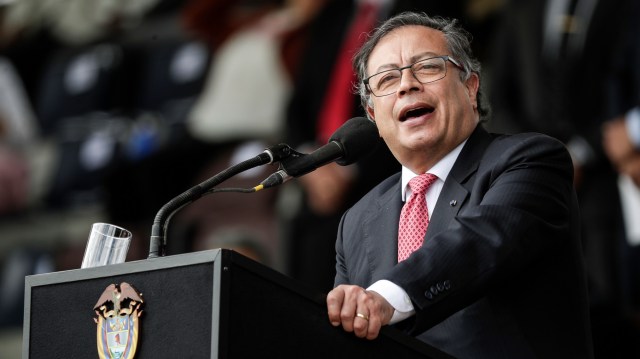
That’s all for today’s Daily Review. Coming up, we’re covering last week’s Africa Climate Change conference and how the U.N. can make progress on its sustainable development goals.
Have a great day,
Jakob Cansler
More From WPR
- Richard Javad Heydarian on last week’s ASEAN summit.
- James Bosworth on BRICS’ de-dollarization dream.
- Paul Poast on Ukraine’s counteroffensive.
- Chris O. Ògúnmọ́dẹdé on Nigerian President Bola Tinubu.

